|
Ben and Abbi from the WetFutures UK team are sharing insights from their research in online sessions held as part of the Council for British Archaeology Festival of Archaeology.
On the 21st July Ben and Abbi will host a virtual field-trip to the archaeology and contemporary heritage of the upland peatland landscape of Ilkley Moor Find out more: https://www.eventbrite.co.uk/e/ilkley-moor-archaeology-and-contemporary-heritage-tickets-154525725605 On the 20th July Abbi, along with Dr Karina Croucher (University of Bradford) and Dr Melanie Giles (University of Manchester) will host a workshop on poetry and archaeology in conversation (including a research poem from WetFutures). Find out more: https://www.eventbrite.co.uk/e/rhyme-and-research-archaeology-and-poetry-in-conversation-tickets-160337887939 You can also find out more about other sessions as part of the Festival of Archaeology from the Festival website: https://festival.archaeologyuk.org/
0 Comments
New open-access paper from the WetFutures UK team One of the aims of the WetFutures project is to explore the different uses and perceptions of wetlands. Many wetland sites are also recreational landscapes, where people spend their leisure time, and sometimes tourist destinations. Image: Information Board at Ilkley Moor (by Abbi Flint)
In this paper Abbi and Ben from the WetFutures UK team explore visitor perceptions of three peatland sites in the UK (Shapwick Heath, Thorne and Hatfield Moors and Ilkley Moor) using qualitative analysis of reviews that visitors have posted online - on the popular travel site TripAdvisor. These online user-generated reviews are already well-used in tourism research and we feel that they offer great potential for understanding how people use and perceive heritage landscapes like peatlands. In our piece we were particularly interested in the role that cultural heritage played in these visitor narratives. The article is published open-access, so you can read the full-text here: https://doi.org/10.1080/13527258.2021.1941198 By Abbi Flint (WetFutures UK team) 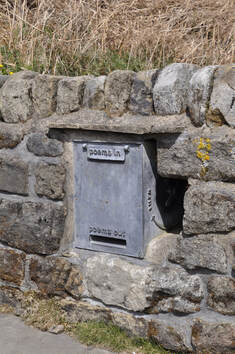 Photo of poetry postbox on Ilkley Moor by B. Jennings Photo of poetry postbox on Ilkley Moor by B. Jennings In November last year, Ben Jennings and I published an open access article in the journal Time and Mind on how the archaeology and folklore of peatlands might play a role in how people engage with and think about these landscapes. The article is open access, so anyone can read it, but we realise that not everyone wants to read academic articles. As I write poetry outside of my day job, I was keen to explore the potential of using poetry as a creative way of sharing the Ideas we had written about. The poem below aims to do that, creatively responding to key ideas from the article, but exploring these in a poetic way. You can watch a video that Ben Jennings has put together, with me reading the poem over images of Ilkley Moor, here: https://youtu.be/o1VlbEuVJOI, and the full text of the poem is below. Saturated with Stories Peatlands blur water and earth, a shape- shifting land where past and present collapse where nature and culture entangle. If we listen, what story will they tell? This story begins before words with trees cleared by people, by climate, to form peat. This story begins with absence from maps wastelands to be tamed and drained into use damage that outlasts generations. This story begins with Holmes on a mire haunted and dangerous. Wild tales of moors as ancient and alien. It’s a story of other-than-human, of black moor-dogs of bottomless depths, of Will-o’-the-Wisps faeries that dwell in watery places. Where bodies are not lost but intentionally interred in liminal spaces. This story begins with people. Of living and working, burying and remembering, healing, forgetting, walking to escape. This story is unspoken, needs science to translate what was quietly written in archives of pollen and fragments. This is a story of wilderness managed for water, for carbon, for nature as a resource for our future. This is a story of balance. On Ilkley Moor, a peaty palimpsest from Neolithic to today, written in traces of settlements and standing stones rocks carved and circled for reasons unknown. Where a giant’s wife spilled Skirtfuls of Stones giving way to big cats and UFOs. ‘Metropolis of hydros’, the ‘mountain spa’ where a song warns of going out baht’at and where Darwin came for the ‘water cure’. Today, Stanza Stones are etched with poetry and ancient paths trace crash-sites through sheep-folds to quarries, where land was made to work where commoners hold rights to graze and walk. These stories re-enchant peatlands. Stories that are still being written, an ‘unbroken dialogue’ with more than one voice. Widening the lens changes our view of peatlands as plural, old and new. What futures tales will tell of crashed bikes of curlew, of poetry, of rewetted bogs? Shared stories make space for shared ownership where we all play our part in the telling and co-create new forms of heritage. Peatlands are saturated with stories. In writing this piece, I’ve been inspired by work on poetic inquiry as a research method (e.g. Faulkner, 2020) and as a way of engaging with and communicating research findings (for more examples of this check out the science poetry journal Consilience and the recent University of Bradford Continuing Bonds creative dissemination project). Of course, this is also part of a rich tradition of writing about archaeology and landscape through poetry (see also our WetFutures Ireland colleagues Ben and Rosie's piece on Seamus Heaney’s ‘bog poetry’).
What do you think? Is poetry a useful way to share ideas and research about peatland heritage? We’d love to hear your thoughts either in the comment box below or on twitter (@WetFutures) One aspect of the WetFutures project is to explore the different ways in which people think about and use peatlands, and what this means for peatland heritage and how that is managed. In this fourth #WetlandHeritageChat, we’re focusing on the different ways that people use and engage with peatlands. Join us on Wednesday the 21st April (12pm UK/Ireland, 1pm Netherlands) to collectively discuss:
WetFutures team members will be there to share some of what we have learnt from our research, and we’d love to hear your views on how you and others use and engage with these fantastic environments and their heritage. If you’ve not joined a twitter chat before it’s a great opportunity to make connections, learn and share ideas and work on a topic. How it works A twitter chat is simply a collaborative online conversation organised around a central theme or topic. To take part, you just need to be logged in to twitter and use the search function to find the hashtag #WetlandHeritageChat. Over the course of the hour, we’ll prompt discussion with a series of questions (numbered Q1, Q2, Q3 etc) and encourage you to respond by joining the conversation; tweeting your response/reflections using the #WetlandHeritageChat hashtag, and A1, A2, A3, etc to indicate which question you’re responding to. You don’t have to respond to the questions but we hope you will, and your comments, questions and reflections will be valued if you do. If you follow our twitter account (@WetFutures) you’ll find it easier to keep track of the questions. If you can’t join the twitter chat as it happens, you can still see the discussion (and add your responses) afterwards using the #WetlandHeritageChat hashtag. We will also archive the chat and share the link via twitter. Join us! Why not block the date in your diary and join us over lunch on the 21st April (12-1pm in UK and Ireland, 1-2pm in the Netherlands)? Following the Irish and English survey, WetFutures has recently started a survey in the Netherlands that measures how people experience Dutch peatlands. By participating in an online questionnaire people can indicate which values they associate with these landscapes. What do peatlands mean to their visitors? With this research we aim to inventory current values associated with peatlands. The study includes six peatland areas in different parts of the Netherlands: Fochteloërveen, Bargerveen, Korenburgerveen, Wooldse Veen, Groote Peel, Mariapeel and Deurnese Peel. The results of the study allow us to compare the current views of peatlands to how they were perceived in the past. Similarly, the results may contribute to future management of Dutch peatlands. It is the first time that this type of research is conducted in the Netherlands. If you wish to read more about or participate in this study, please click the link below (Dutch). We will post an update when the results have been analysed.
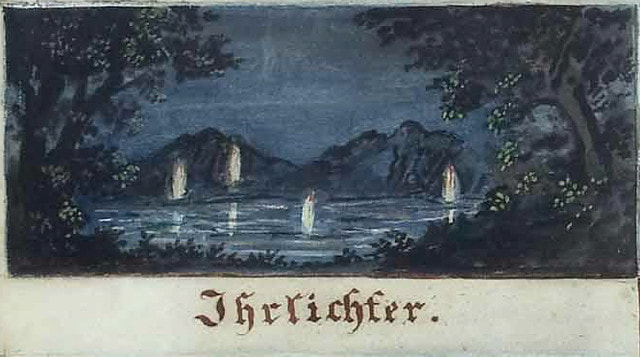
(Image: Public Domain review) All of these can be considered part of what UNESCO describes as the ‘intangible cultural heritage’ of wetlands – including local traditions and beliefs, songs and stories, art and crafts. If you’re interested in peatlands and wetlands please join us on twitter on Wednesday the 10th February (12-1pm in UK and Ireland, 1-2pm in the Netherlands) to discuss these and other issues in the next Wetland Heritage twitter chat. You don’t have to have a professional role in peatlands and wetlands to join the chat, this is an opportunity for anyone who’s interested in these landscapes to be part of the conversation, so please join us and make your voice heard. If you’ve not joined a twitter chat before it’s a great opportunity to make connections, learn about work that’s going on in this area and share your ideas and experiences. If you’re interested in this topic you may enjoy some recent publications by the WetFutures teams:
A twitter chat is simply a collaborative online conversation organised around a central theme or topic. For this #WetlandHeritageChat the topic will be wetland art, crafts and folklore. You just need to be logged in to twitter and use the search function to find the hashtag #WetlandHeritageChat. Over the course of the hour, we’ll prompt the discussion with a series of questions (numbered Q1, Q2, Q3 etc) and encourage you to respond by joining the conversation; tweeting your response/reflections/comments using the #WetlandHeritageChat hashtag, and A1, A2, A3, etc to indicate which question you’re responding to. You don’t have to respond to the questions, but your comments, questions and reflections will be valued if you do. If you follow our twitter account (@WetFutures) you’ll find it easier to keep track of the questions. If you can’t join the twitter chat as it happens, you can still see the discussion (and add your responses) afterwards using the #WetlandHeritageChat hashtag. We’re also planning to archive the chat and share it here. Join us! Why not block the date in your diary and join us over lunch on the 10th February (12-1pm in UK and Ireland, 1-2pm in the Netherlands)? We’d love to read your contributions to the #WetlandHeritageChat and your thoughts on wetland art, crafts and folklore! At the end of last year the WetFutures teams looked back over 2020 and shared some highlights from their work in the Netherlands, UK and Ireland as a festive countdown via twitter. Here are another 8 highlights in case you missed them, along with links to where you can find more information. 9. Why not take a virtual holiday and view the Wetfutures Ireland team’s ‘Guide to Peatland Heritage in Ireland’ as part of National Heritage week https://www.heritageweek.ie/projects/the-nations-staycation-a-guide-to-peatland-archaeology-in-ireland 10. Another insight from Wetfutures Netherlands team’s work. You can find out more about their research via the paper here https://doi.org/10.1007/s12685-020-00251-7 11. Some great integrated mapping work from the Wetfutures Netherlands team 12. Why not spend some time thinking about how we care for wetlands and their cultural heritage https://wakelet.com/wake/pP-9V1tFro9GA1Q3467h9 13. A wider impact from the Wetfutures Ireland team who responded to the Special Rapporteur (UN) in the field of cultural rights in May. You can read their response toward the bottom of this page: https://www.ohchr.org/EN/Issues/CulturalRights/Pages/ClimateChange.aspx 14. These maps from the Wetfutures Netherlands team demonstrate the value heritage research offers for planning. You can read more about this work here: https://doi.org/10.1007/s12685-020-00251-7 15. Hot off the press, we invite you to read the WetFutures UK open access paper on peatlands folklore and archaeology https://doi.org/10.1080/1751696X.2020.1815293
16. Why not watch Wetfutures Ireland’s presentation from @repeatearth Global Festival - ‘RE-gendering the bog’ #WetlandHeritageChat https://www.youtube.com/watch?v=JEf1_osames&feature=youtu.be Do join in the twitter conversation by following #WetlandHeritageChat or leave a comment in the box below. At the end of last year the WetFutures teams looked back over 2020 and shared some highlights from their work in the Netherlands, UK and Ireland as a festive countdown via twitter. In case you missed it, here are the first 8 highlights and links to where you can find out more. 1. Why not listen to WetFutures UK introduce the importance of tangible and intangible heritage of peatlands https://www.moorsforthefuture.org.uk/the-latest/recent-news/moorlife-2020/the-heritage-of-peatlands-webinar 2. Insight from the WetFutures Netherlands team about their work in Schokland 3. Why not watch the contribution from WetFutures Ireland team to the Landscape Research group’s event ‘A Future of Our Own Making’ https://lex.landscaperesearch.org/collections/lrg-events 4. Revisit the first #WetlandHeritageChat on wetland archaeology https://wakelet.com/wake/CHcRe2v6OWZJPx6Al_nfn 5. Another insight from the work of WetFutures Netherlands 6. Revisit the virtual presentation given by the Wetfutures team at the IUCN Peatlands Programme Annual Conference https://www.youtube.com/watch?v=epFnY_qhaqE&feature=youtu.be
7. Read how the WetFutures Ireland team explore connections between literature, archaeology and gender through the ‘bog poems’ of Seamus Heaney https://www.researchgate.net/publication/344352289_Heaney's_Hauntings_Archaeology_Poetry_and_the_'Gendered_Bog' 8. More insight from the WetFutures Netherlands team about their work in Schokland Join us on twitter on the 11th November for the next #WetlandHeritageChat exploring caring for wetlands and their cultural heritage. A wide range of people are involved in caring for and managing wetland and peatland landscapes, from those working for and representing professional organisations, to community and interest groups, and volunteers with a passion for these landscapes. This #WetlandHeritageChat provides an opportunity for anyone with an interest in these landscapes to come together to think about the place of cultural heritage in wetland and peatland care and management. If you’re interested in peatlands and wetlands please join us on twitter on the 11th November (12-1pm in UK and Ireland, 1-2pm in the Netherlands).
You don’t have to have a professional role in peatlands and wetlands to join the chat, this is an opportunity for anyone who’s interested in these landscapes to be part of the conversation, so please join us and make your voice heard. If you’ve not joined a twitter chat before, it’s a great opportunity to make connections, learn about work that’s going on in this area and share your ideas and experiences. How it works A twitter chat is simply a collaborative online conversation organised around a central theme or topic. For this #WetlandHeritageChat the topic will be caring for wetlands and their cultural heritage. You just need to be logged in to twitter and use the search function to find the hashtag #WetlandHeritageChat. Over the course of the hour, we’ll prompt the discussion with a series of questions (numbered Q1, Q2, Q3 etc) and encourage you to respond by joining the conversation; tweeting your response using the #WetlandHeritageChat hashtag, and A1, A2, A3, etc to indicate which question you’re responding to. You don’t have to respond to the questions, but your comments, questions and reflections will be valued if you do. If you follow our twitter account (@WetFutures) you’ll find it easier to keep track of the questions. If you can’t join the twitter chat as it happens, you can still see the discussion (and add your responses) afterwards using the #WetlandHeritageChat hashtag. We’re also planning to archive the chat and share it here. Join us! Why not block the date in your diary and join us over lunch on the 11th November (12-1pm in UK and Ireland, 1-2pm in the Netherlands)? We’d love to read your contributions to the next #WetlandHeritageChat and your thoughts on caring for wetlands and their cultural heritage. Last month, Ben and Abbi from the UK WetFutures team, contributed to a Heritage of Peatlands Webinar, hosted by Europarc Atlantic Isles and the Moors for the Future Partnership.
If you missed it you can watch the recording at the Moors for the Future website here The presenters discussed the nature of peatland archaeology and some of the heritage features of peatlands in the Peak District National Park, the intangible heritage of peatlands, the challenges faced by peatlands and their heritage from wildfires, and the ways that archaeology and conservation professionals can work together to ensure the cultural and natural heritage of peatlands are valued and protected. Over 100 people joined the webinar and asked great questions that led to a fascinating discussion. We'd love to read your views - what is your favourite peatland archaeological site or feature? What does peatland heritage mean to you? |
Archives
April 2021
Rosie EveretTRosie is the latest member of the WetFutures team and is here to keep you all updated on the latest WetFutures news! |

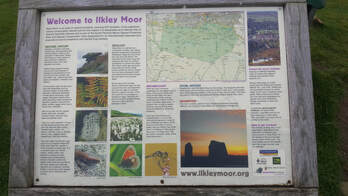
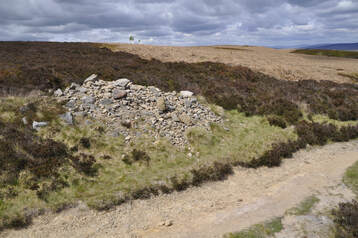
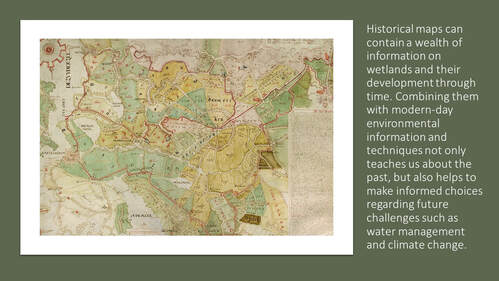
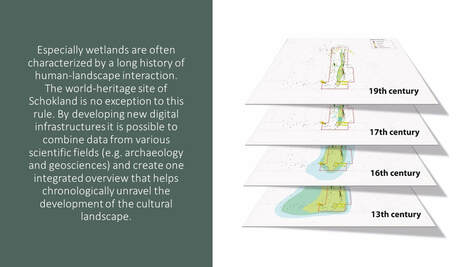
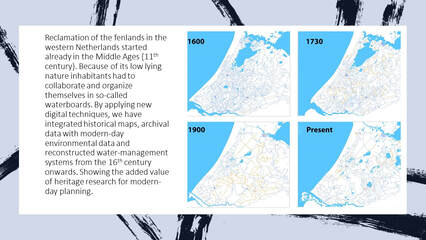
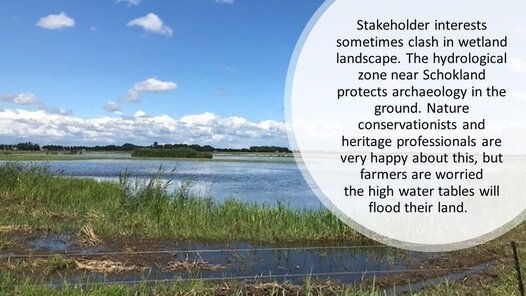
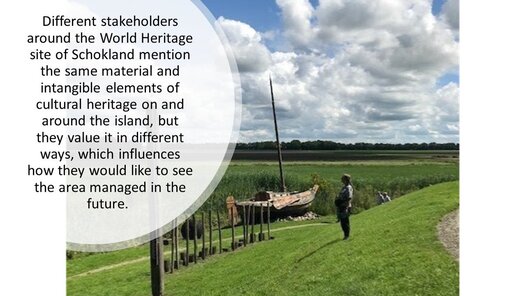
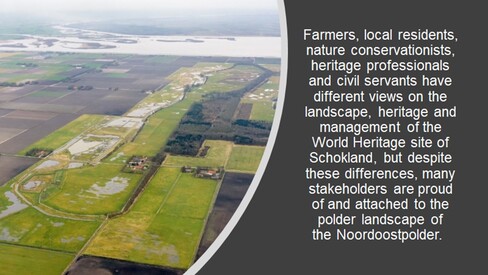
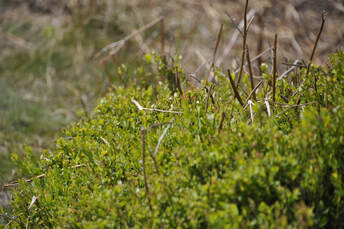
 RSS Feed
RSS Feed
